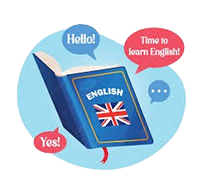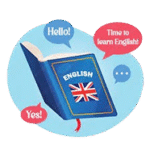Articles are words that define a noun as specific or unspecific. In English, we have three articles:
-
Definite article:
-
the → used for specific nouns.
-
-
Indefinite articles:
-
a → used before singular nouns beginning with a consonant sound.
-
an → used before singular nouns beginning with a vowel sound (a, e, i, o, u).
-
🔹 1. Definite Article – The
We use the when talking about something particular or already known.
✅ Examples:
-
The sun rises in the east.
-
I saw the boy who lives next door.
-
Please close the door.
🔹 2. Indefinite Articles – A / An
We use a or an when talking about something not specific or mentioned for the first time.
-
A → before consonant sounds.
-
An → before vowel sounds.
✅ Examples:
-
I saw a dog in the park. (any dog, not a specific one)
-
She bought an apple. (any apple, not a specific one)
-
He wants to be an engineer.
⚡ Note: It’s about sound, not just spelling.
-
An honest man (because “h” is silent → sounds like a vowel).
-
A university (because “u” sounds like “yoo,” a consonant sound).
🔹 3. Zero Article (No Article)
Sometimes, no article is used:
-
Before plural nouns (general sense):
-
Dogs are friendly animals.
-
-
Before uncountable nouns (general sense):
-
Milk is good for health.
-
-
Before proper nouns:
-
Pakistan is a beautiful country.
-
🧠 Quick Rules:
-
Use the → for specific or unique things.
-
Use a / an → for non-specific, singular, countable nouns.
-
Use no article → for general ideas, plural nouns, uncountables, and proper nouns.



